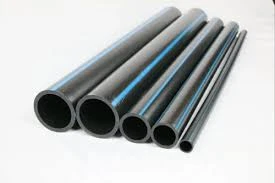дек. . 26, 2024 00:32 Back to list
rigid pvc sheet
Understanding Rigid PVC Sheets A Comprehensive Guide
Rigid PVC (Polyvinyl Chloride) sheets are a versatile and widely used material in various industries due to their unique properties. The popularity of rigid PVC sheets can be attributed to their durability, resistance to chemicals, low maintenance requirements, and cost-effectiveness. In this article, we will explore the characteristics, applications, and advantages of rigid PVC sheets, offering insights into why they have become a favored choice for many applications.
Characteristics of Rigid PVC Sheets
Rigid PVC sheets are known for their high strength and stiffness, making them ideal for a wide range of applications. These sheets typically come in a variety of thicknesses, from 0.5mm to several millimeters, allowing for customization based on specific needs. One of the most important characteristics of rigid PVC is its excellent resistance to environmental factors including moisture, chemicals, and UV rays. This resilience makes it suitable for both indoor and outdoor applications.
Moreover, rigid PVC sheets are lightweight compared to many other materials, such as glass or metal. This can significantly reduce shipping costs and make handling and installation easier. The material is also non-toxic and can be manufactured to meet various safety standards, which is crucial for applications in food packaging and healthcare.
Applications of Rigid PVC Sheets
The applications for rigid PVC sheets are diverse and span multiple industries. In the construction industry, they are often used for window frames, doors, and cladding due to their durability and low maintenance requirements. In signage, rigid PVC sheets are popular because they can be easily printed on and come in various colors, allowing for high-quality graphics that can withstand the elements.
rigid pvc sheet

Furthermore, the packaging industry utilizes rigid PVC sheets for creating sturdy packaging solutions, particularly in the production of blister packs and clamshells which are designed to protect products during transit. In the medical field, rigid PVC is frequently used for medical devices and containers, owing to its safety and chemical resistance properties.
Advantages of Rigid PVC Sheets
One of the primary advantages of rigid PVC sheets is their cost-effectiveness. Compared to other materials like aluminum or glass, PVC sheets are often less expensive, making them a budget-friendly option for many projects. Additionally, the longevity of rigid PVC means that initial savings can lead to further cost benefits in the long run due to reduced maintenance and replacement costs.
Another significant advantage is their ease of fabrication. Rigid PVC sheets can be easily cut, shaped, and fabricated using standard tools, which streamlines the manufacturing process. This flexibility allows for custom solutions tailored to specific project requirements.
Lastly, the environmental impact of rigid PVC has improved over the years. Many manufacturers have adopted recycling practices, and products are increasingly being made from recycled PVC, contributing to sustainability efforts.
Conclusion
Rigid PVC sheets are an essential material across various industries due to their durability, versatility, and cost-effectiveness. With applications ranging from construction to medical devices, their benefits make them an ideal choice for numerous projects. Understanding the properties and advantages of rigid PVC sheets can help manufacturers and consumers alike make informed decisions about their material choices, ultimately ensuring the success of their projects. As technology advances, the future of rigid PVC looks promising, promising further innovations and applications in various fields.
-
HDPE Pipe Fittings: Durable, Leak-Proof Solutions
NewsAug.16,2025
-
Premium CPVC Sheet: High-Temp & Chemical Resistant Solutions
NewsAug.15,2025
-
Durable PPR Pipe for Hot & Cold Water Systems - Easy Install
NewsAug.14,2025
-
Durable HDPE Sheet | Versatile & Impact-Resistant Plastic
NewsAug.13,2025
-
Premium PVC Soft Sheets: Clear, Flexible & Durable
NewsAug.12,2025
-
Premium PVC Round Rods: Durable, Chemical Resistant, Easy to Machine
NewsAug.11,2025

